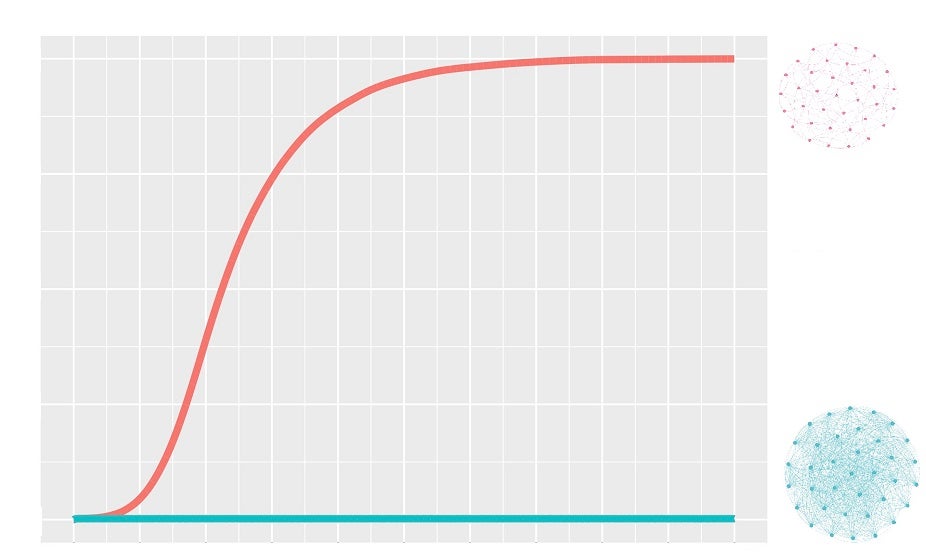Intergroup Inequality

Publications
Research Summary
Do reduced barriers to social exchange create more durable forms of inequality? We investigate this puzzle with a simple model of pairwise bargaining in populations stuck in states of inter-group inequality. This model builds on previous work suggesting populations should reach stable states of equality given infinite time. We consider the implications of both changing the proportions of interacting groups and varying the structure of interaction networks. Our results suggest that structures with minimal connections and clustering provide the neighborhood reinforcement necessary for inter-group equality to emerge and diffuse in a population. On the other hand, populations entrenched in inter-group inequality cannot reach equality on a reasonable timescale when they lack this neighborhood reinforcement. Fully connected populations, where communication between groups is most efficient, are also the least effective for escaping entrenched inequality.

